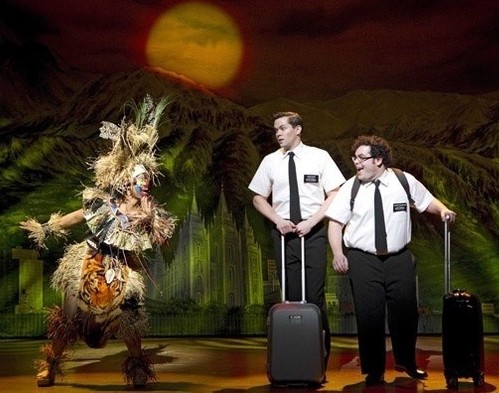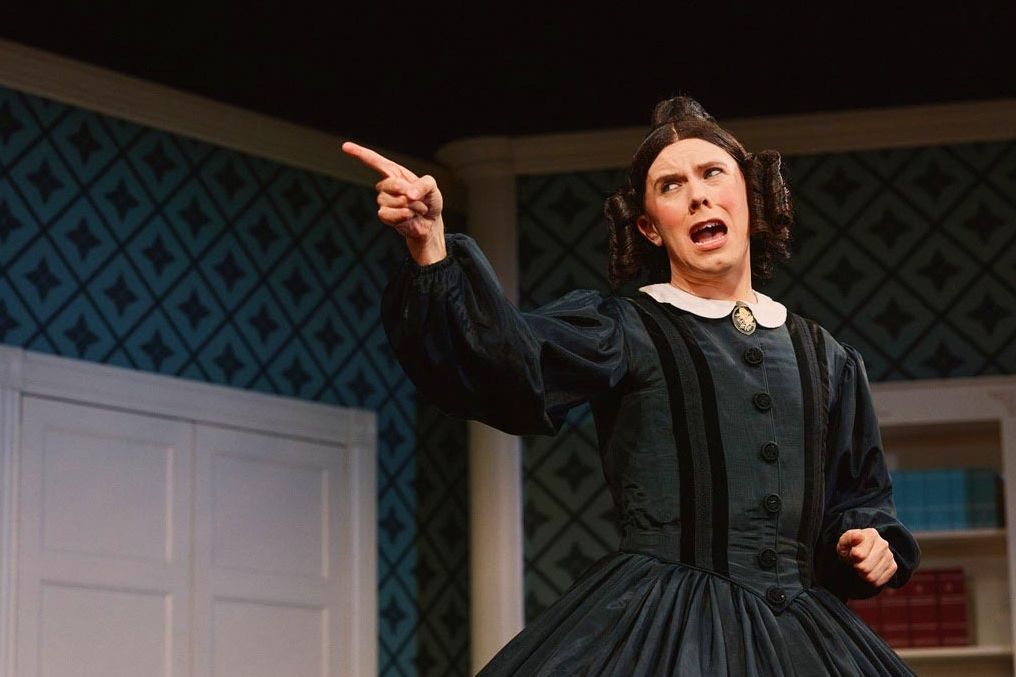Second Coming: The Book of Mormon Goes on Sale May 2

The musical will run July 8–20 at the Keller Auditorium (we get a longer run this time). Tickets go on sale on Friday, May 2 at 10 am and are available online at Portland.broadway.com and Portland5.com; at the Portland Opera Box Office, 503- 241-1802; the Portland’5 Box Office, 800-273-1530; or Ticketwest locations. Assemble your crack musical team and plan your strategy now.
Want more info? Here’s an excerpt from my review:
The entire show is a pirate’s plundering of Broadway’s Old and New Testament. “Hello” harks back to "The Telephone Hour" in Bye Bye Birdie. “I Believe,” a song by Elder Price highlighting the absurdity and racism of Mormonism’s literal doctrine (“I believe, ancient Jews built boats and sailed to America” and “I believe, that in 1978, God changes his mind about black people”) riffs off of The Sound of Music’s “I Have Confidence.” And, of course, regular assaults are lobbed at the Lion King to incredible comedic effect, from a masked African American dancer hired by their parents in the airport to see them off, despite having never seen Africa; to a dead Lion King–style puppet dragged across the village in the opening Africa scene; to an uproarious corruption of “Hakuna Matada,” in which Elder Cunningham asks, “Does it mean ‘no worries for the rest of our days?” only to find it means the blasphemous opposite. There’re also pokes at The King and I, Annie, Wicked, and the B-52’s “Love Shack,” among others.
Yet despite the snark of its satire, the play is fundamentally an homage, both to musicals, and, as Matt Stone has said, “an atheist's love letter to religion.” The choreography, by Casey Nicholaw, who co-directed with Trey Parker, is incredible—the missionaries channeling here Fosse (at one point in pink sequined vests with jazz hands), there Rent, with unadulterated (and exaggeratedly swishy) Broadway glee, while the Africans are all Fema and Lion King. The set is grandiose and imaginative, shifting seamlessly from Salt Lake to Uganda to pioneer America to Hell. And the plot, riddled with themes of belief and doubt, is ultimately about the redemptive power of religion, assuming one takes religion metaphorically. Summing up the play—its truth and its satire—one villager tells the leading convert, Nabulungi : “Salt Lake City isn’t an actual place. It’s an idea, a metaphor...”




